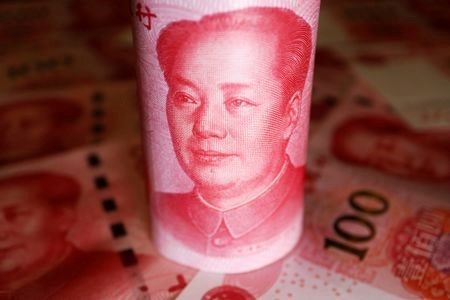




January Economic Update: Growth slows, prices rise
 DOWNLOAD
DOWNLOAD

Inflation Update: Up, up, and away?
 DOWNLOAD
DOWNLOAD

Quarterly Economic Growth Release: Growth takes on a slower pace
 DOWNLOAD
DOWNLOAD


China bond intervention is only a short-term fix

HONG KONG – China’s central bank may have done just enough to stave off a worsening of one of the more worrying financial-market signals of economic distress – but only for now. Fears of a balance-sheet recession, marked by paying down debt instead of spending, have risen of late as yields on government debt sank to record lows thanks to investors en masse seeking a safe haven for their money.
Monday’s decision by the People’s Bank of China to start borrowing government debt from primary dealers “in the near future” may have enough shock value to reverse the clamor for the notes in the short term. But a longer-term fix needs more than market tweaks.
The PBOC’s move is a precursor to selling the securities itself. It’s not currently in a good position to do this without tapping brokers as it only holds about 1.5 trillion yuan (USD 209 billion) of the stuff on its own books, per Reuters. That’s about 5% of Chinese government debt in circulation and 1.4% of the onshore bond holdings by Chinese entities.
The aim would be to put enough extra paper into the market to more than soak up demand, thus allowing yields to rise. And then, hey presto, no one needs to worry about a looming economic collapse. The mere act of saying it’s planning to take action has had some effect: the 10-year benchmark yield has already rebounded nearly 10 basis points this week from a 20-year low.
Trouble is, that doesn’t change any of the underlying issues the economy faces. Nor is the PBOC necessarily the right institution to fix it. The PBOC has been easing monetary supply, for example, yet credit demand has been sluggish.
It has also been under pressure to cut rates, but that has prompted a lot of speculation by traders on further easing, pushing down yields and reinforcing the growing perception that the outlook is gloomy. Like a feedback loop, ailing confidence in the USD 18 trillion economy and uncertainty over the direction of asset prices have investors shunning the stock and property markets, and instead piling into government debt, which also weighs on yields.
If nothing else, though, the central bank’s new plan buys some breathing room ahead of the ruling Communist Party’s Third Plenum which starts in a couple of weeks. If officials there come up with policies supportive of boosting growth, the pressure on the bond markets may well ease. If not, the bond-buying frenzy is likely to return, pushing Beijing and the PBOC back to square one.
CONTEXT NEWS
The People’s Bank of China said on July 1 that it would start to borrow sovereign bonds from primary traders in the open market “in the near future”. The announcement sets the stage for possible government debt selling in the face of a bond market rally that has pushed borrowing costs to their lowest level in two decades, Reuters reported.
(Editing by Antony Currie and Katrina Hamlin)
This article originally appeared on reuters.com





 By Reuters
By Reuters